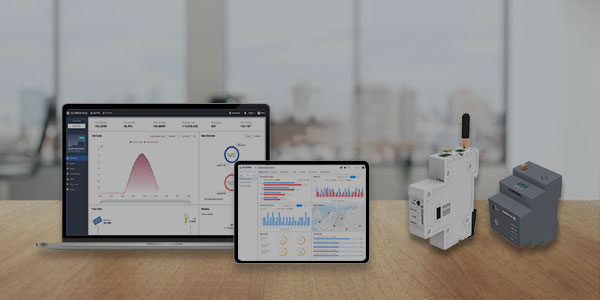Energy is one of the basic needs for our daily lives and the functioning of the economy. In order to manage and utilize energy resources more effectively, energy monitoring systems have become a key technology.
Introduces the definition and concepts of energy monitoring systems and emphasizes their importance in today’s complex energy environment. An energy monitoring system is a system that integrates software and hardware technology to monitor, record and analyze energy consumption and efficiency data in real time. It can help users understand energy usage, discover potential energy-saving opportunities, and formulate corresponding energy management strategies.
Describe in detail the functions and components of an energy monitoring system. Energy monitoring systems usually consist of data acquisition equipment, data transmission communication equipment, data storage and processing equipment, and data visualization interfaces. Data collection equipment can collect real-time consumption data of electricity, gas, water and other energy through devices such as sensors or smart meters. The data is then transmitted to the data storage and processing device through the communication device. After processing and analysis, it can be presented to the user in the form of charts or reports through the data visualization interface.
Explore the application areas of energy monitoring systems. Energy monitoring systems are widely used in various fields, including commercial buildings, industrial production, public institutions, etc. Commercial buildings can utilize energy monitoring systems to monitor electricity and air conditioning consumption, optimizing energy use and saving energy. In industrial production, energy monitoring systems can provide comprehensive energy consumption data to help companies identify energy waste and implement effective energy management measures. Public institutions such as schools and hospitals can also use energy monitoring systems to optimize energy use and reduce energy costs.
Explain the importance of energy monitoring systems in energy management. Energy monitoring systems can help users understand energy consumption and efficiency in real time so that they can adjust energy usage and take energy-saving measures in a timely manner. Through the visual presentation of data, users can clearly understand the patterns and trends of energy consumption and formulate reasonable energy management strategies. Energy monitoring systems can also provide alarm and anomaly detection functions to quickly detect problems such as energy waste or equipment failure.
The energy monitoring system is a powerful tool that helps users monitor energy consumption and efficiency in real time and provides support for data-driven energy management decisions. By utilizing energy monitoring systems, we can manage and utilize energy resources more effectively and achieve a sustainable energy future.










